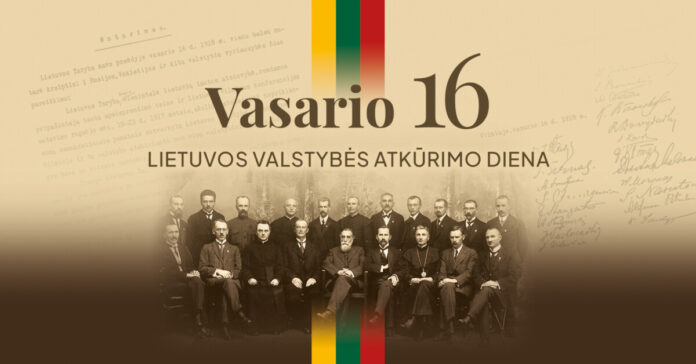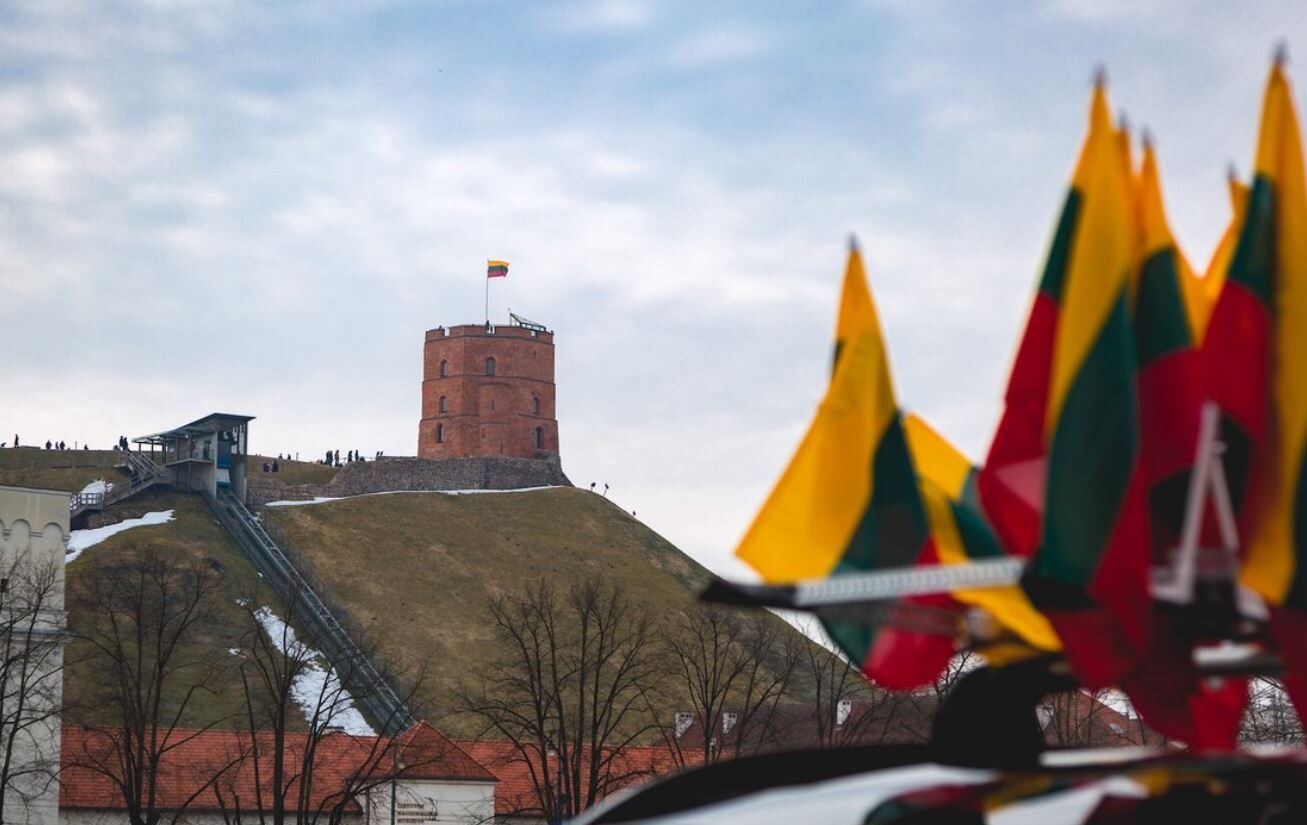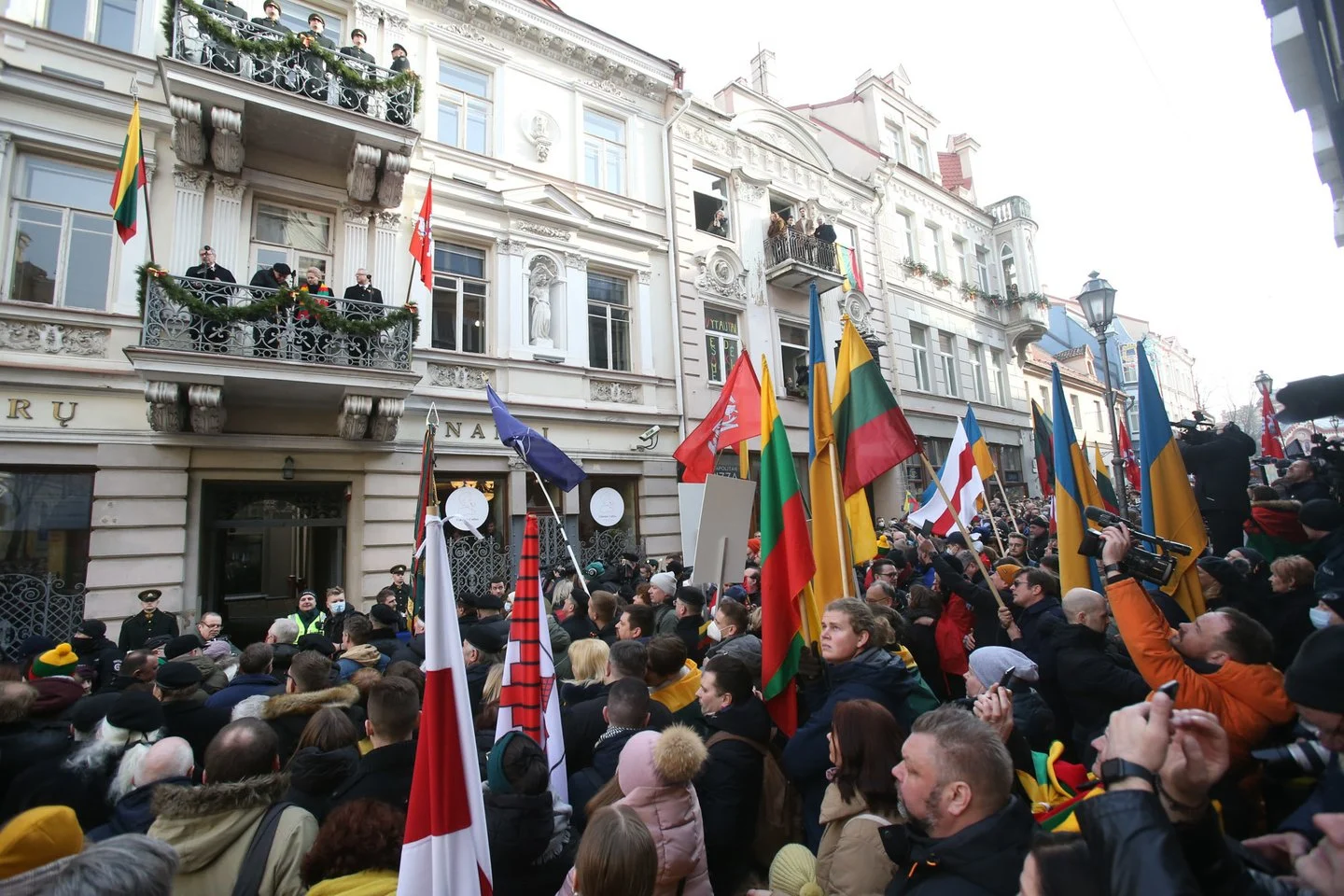
February 16 is a date every Lithuanian knows. It marks the anniversary of the re-establishment of Lithuania’s independence in 1918 after 160 years of Russian Tsarist rule, internal strife and a grim World War. A group of twenty visionaries signed the Declaration of Independence and made way for a period of freedom in a democratic country. It was the creation of a state after several centuries of wars and partitions.
 Every year on this day, Lithuanians throughout the world celebrate the anniversary with commemorations, concerts, flag-raising, lectures, exhibitions, workshops for children, bonfires and parades. In Lithuania, the tricolor is raised not only by governmental and commercial institutions, but also by private citizens on houses and apartment buildings. The same is true for March 11 and July 6, King Mindaugas’ Coronation Day. The law requires the flag to be raised by 7 am and lowered at 11 pm.
Every year on this day, Lithuanians throughout the world celebrate the anniversary with commemorations, concerts, flag-raising, lectures, exhibitions, workshops for children, bonfires and parades. In Lithuania, the tricolor is raised not only by governmental and commercial institutions, but also by private citizens on houses and apartment buildings. The same is true for March 11 and July 6, King Mindaugas’ Coronation Day. The law requires the flag to be raised by 7 am and lowered at 11 pm.
On March 11, Lithuania celebrates a separate event – the Restoration of Independence after the fall of the Soviet regime, declared in 1990 by then High Council President Vytautas Landsbergis. In the diaspora, many communities organize joint Independence Day events between February 16 and March 11 to commemorate both anniversaries at once.
 In Lithuania, both days are national holidays, and involve commemorations in every town and city. In Vilnius, among the president will participate in various ceremonies and will present various national awards.
In Lithuania, both days are national holidays, and involve commemorations in every town and city. In Vilnius, among the president will participate in various ceremonies and will present various national awards.
One of the many events taking place in the capital will be a lecture on Dr. Jonas Basanavičius, once of Lithuania’s foremost personalities. He was the ideologist of the Lithuanian national movement, founder and editor of the first prohibited newspaper of national revival “Aušra”, The Dawn. One of the initiators and the Chairman of the Organizing Committee of the 1905 Congress of Lithuanians, the Great “Seimas” of Vilnius. He also initiated the foundation of Lithuanian Science Society in 1907 and was proclaimed its chairman. He edited the continuing publication of the Society “Lietuvių tauta” (The Lithuanian Nation). In 1917-1918 he participated in the activities of the Lithuanian Council, and was Chairman of the Council’s meeting during which the Act of February 16th declaring the independence of Lithuania was signed.



























